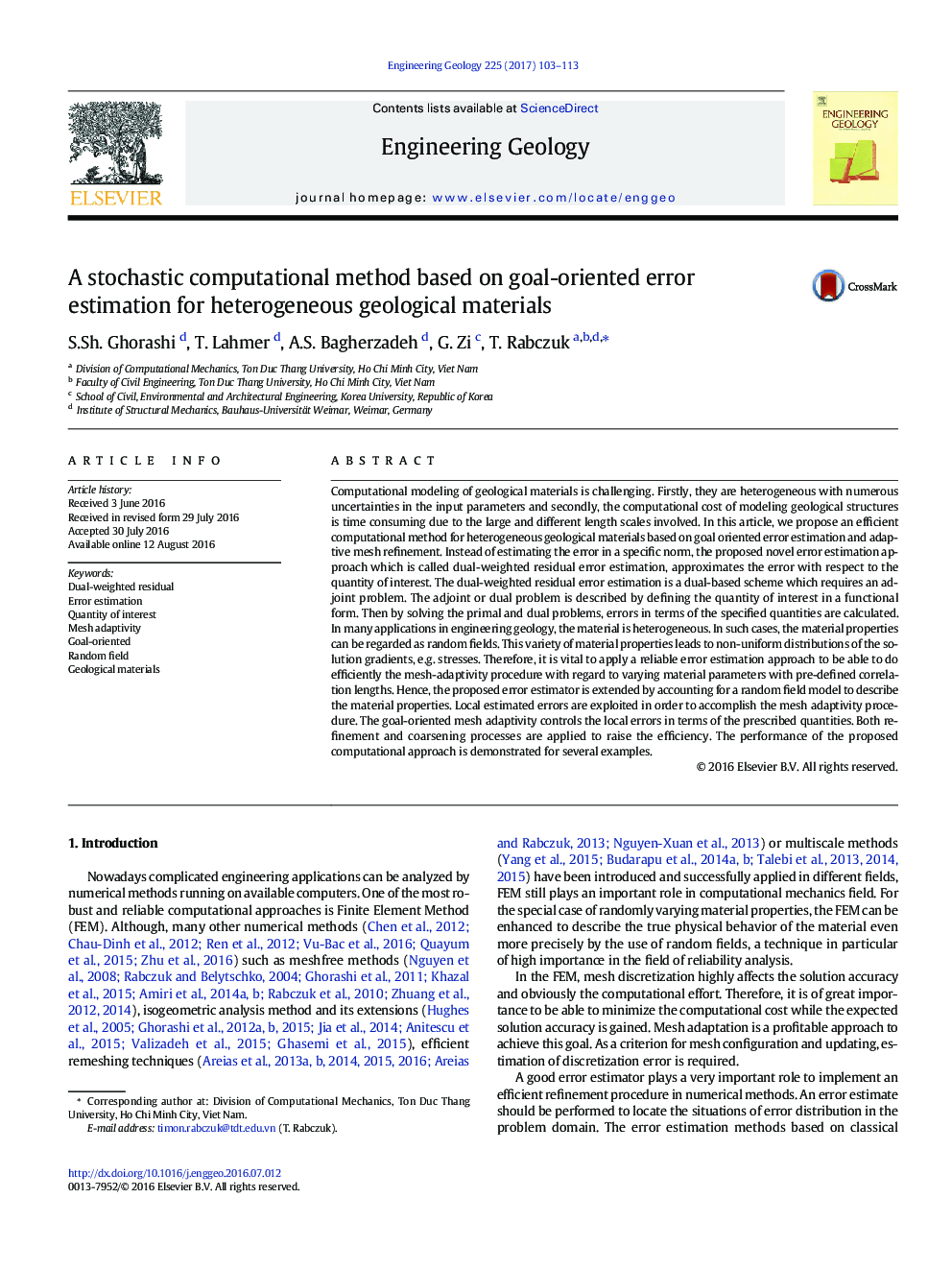| کد مقاله | کد نشریه | سال انتشار | مقاله انگلیسی | نسخه تمام متن |
|---|---|---|---|---|
| 5787566 | 1641760 | 2017 | 11 صفحه PDF | دانلود رایگان |
- Novel adaptive methods for geological materials
- The method accounts for random fields and heterogeneities.
- It is shown the method is computationally faster than other adaptive methods.
Computational modeling of geological materials is challenging. Firstly, they are heterogeneous with numerous uncertainties in the input parameters and secondly, the computational cost of modeling geological structures is time consuming due to the large and different length scales involved. In this article, we propose an efficient computational method for heterogeneous geological materials based on goal oriented error estimation and adaptive mesh refinement. Instead of estimating the error in a specific norm, the proposed novel error estimation approach which is called dual-weighted residual error estimation, approximates the error with respect to the quantity of interest. The dual-weighted residual error estimation is a dual-based scheme which requires an adjoint problem. The adjoint or dual problem is described by defining the quantity of interest in a functional form. Then by solving the primal and dual problems, errors in terms of the specified quantities are calculated. In many applications in engineering geology, the material is heterogeneous. In such cases, the material properties can be regarded as random fields. This variety of material properties leads to non-uniform distributions of the solution gradients, e.g. stresses. Therefore, it is vital to apply a reliable error estimation approach to be able to do efficiently the mesh-adaptivity procedure with regard to varying material parameters with pre-defined correlation lengths. Hence, the proposed error estimator is extended by accounting for a random field model to describe the material properties. Local estimated errors are exploited in order to accomplish the mesh adaptivity procedure. The goal-oriented mesh adaptivity controls the local errors in terms of the prescribed quantities. Both refinement and coarsening processes are applied to raise the efficiency. The performance of the proposed computational approach is demonstrated for several examples.
Journal: Engineering Geology - Volume 225, 20 July 2017, Pages 103-113
